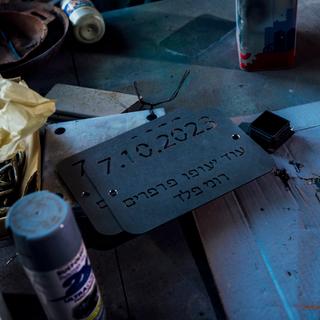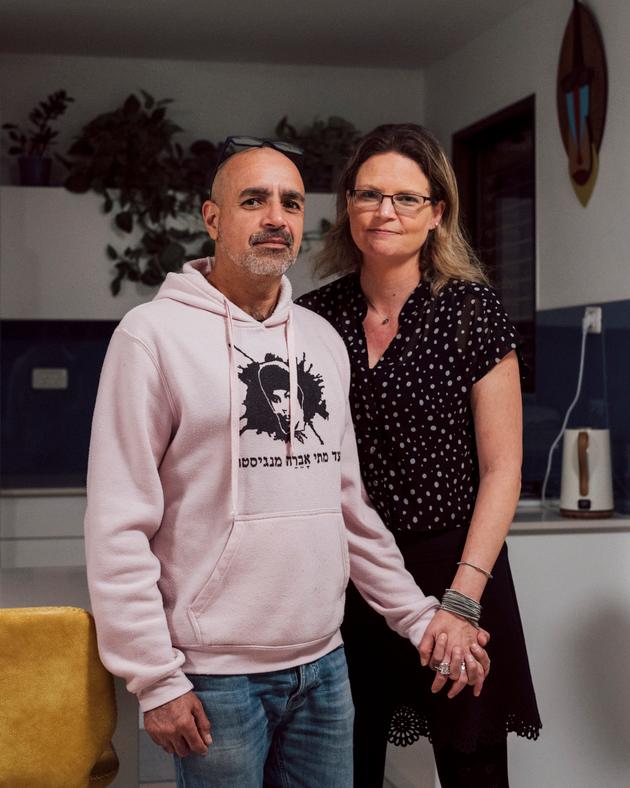


Israeli society, deaf to Palestinian suffering, faces enduring collective trauma
FeatureThe vast majority of Israelis believe that the war was made necessary when Hamas massacred 1,200 civilians and soldiers. As their trauma endures, they ignore the deadly consequences of the military operations in the Palestinian enclave.
Tel Aviv was coming back to life. It would be easy to think that the large seaside city had forgotten the war in Gaza, 50 kilometers to the south, that's been going on for three months. In early January, Michal Feldon decided to dine out in the city with her partner after three months of feeling down. The pediatrician entrusted her twins to a babysitter. But she gave up when she reached the illuminated terraces. Her heart wasn't in it. She went home to chat with a few online friends. "I've got three people in the world I can talk to since the war started," she sighed.
Michal belongs to a negligible minority in Israel, which includes a few hundred people who demonstrate every week against the war under heavy police protection. When she leaves these gatherings, she hides her banners calling for "peace," fearing confrontation. Her fellow citizens frighten her, perceiving the eradication of any threat posed by Hamas as an existential necessity. They unanimously believe that this war was imposed on them by the massacre of 1,200 civilians and soldiers on October 7, 2023. For them, this war is just, and its consequences must be accepted.
Abroad, military experts have compared this campaign to the destruction of the German city of Dresden by the Allies in 1945, and the capture of Grozny in Chechnya by the Russian army in 1995. At least 24,000 Palestinians have been killed, 1% of the Gaza Strip's population, mainly women and children. Israel blames these deaths on Hamas, saying they use civilians as human shields. Israel sees itself as a cancer patient determined to destroy its tumor. It pretends to be unaware that it is imposing this treatment on a foreign, Palestinian body. The genocidal rhetoric has become shockingly normal at the highest level of the state, as well as at the Shamir hospital's water coolers, near Lod in central Israel where Feldon works.

The pediatrician was shocked when a liberal and moderate colleague claimed, as early as October 10, 2023, that "we must bomb all the hospitals in the enclave. Hamas is hiding there, there's no other way." On social media in early January, Feldon posted a horrifying statistic. According to UNICEF, 1,000 children have had one or both legs amputated in Gaza since the bombing began. "Friends told me that there are no innocents there, that they tortured ours on October 7 and are still torturing our hostages," she deplored.
A memory came back to her. "Twenty years ago, two Palestinian children were electrocuted in Gaza. It was an accident. They were transferred to Israel and amputated in my hospital. A generous anonymous Israeli promised to fund their prostheses for life. Faced with two children, we had empathy; today, there are a thousand of them, and we're incapable of it." Feldon comes from a family of activists. Her aunt, the journalist Yael Lotan, was sentenced by the courts for daring to meet exiled leaders of the Palestine Liberation Organization in Romania in 1986. Her mother, a historian, tried to reassure her. "At 80, she's seen other wars and I'd like to believe her when she claims that the storm will pass and people will come to their senses."
You have 80% of this article left to read. The rest is for subscribers only.
